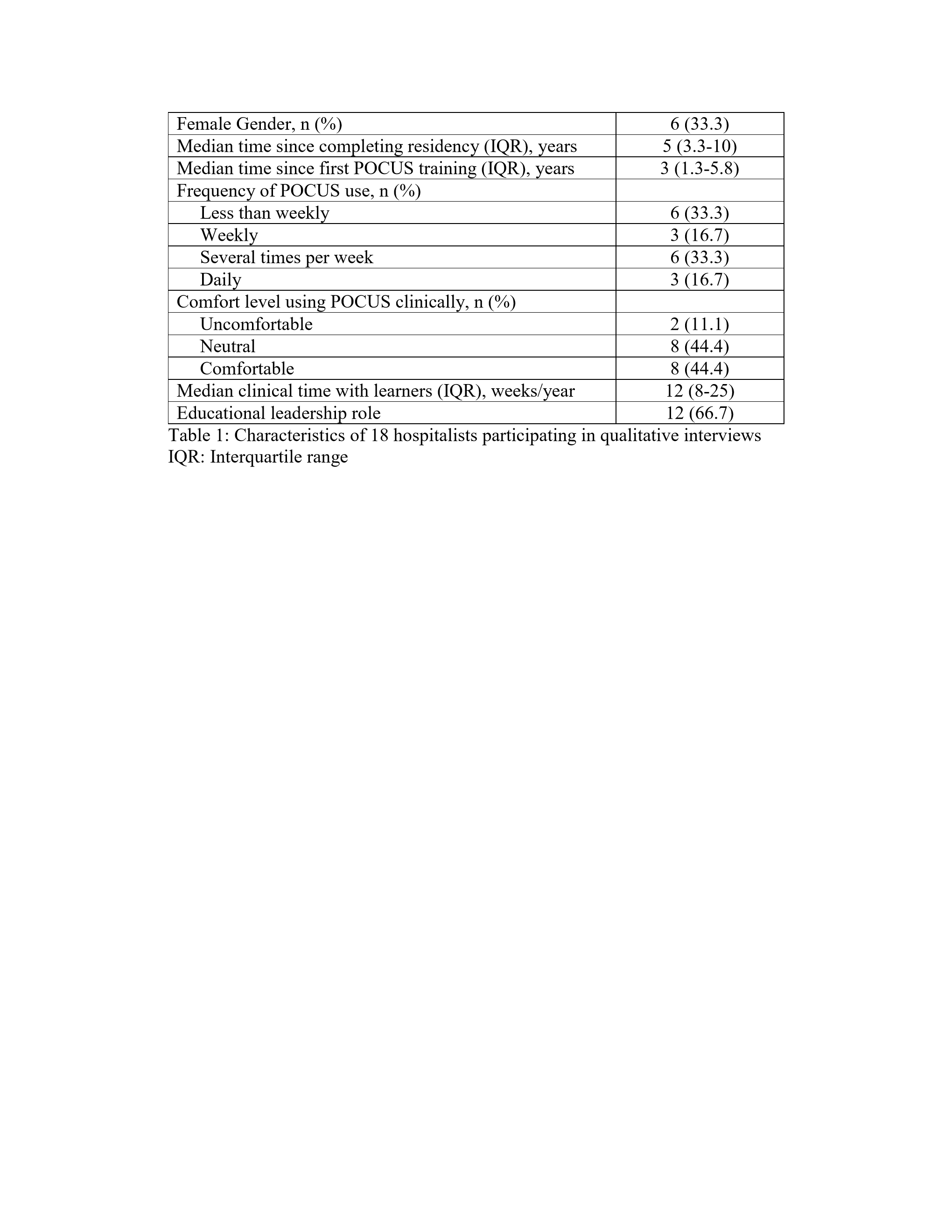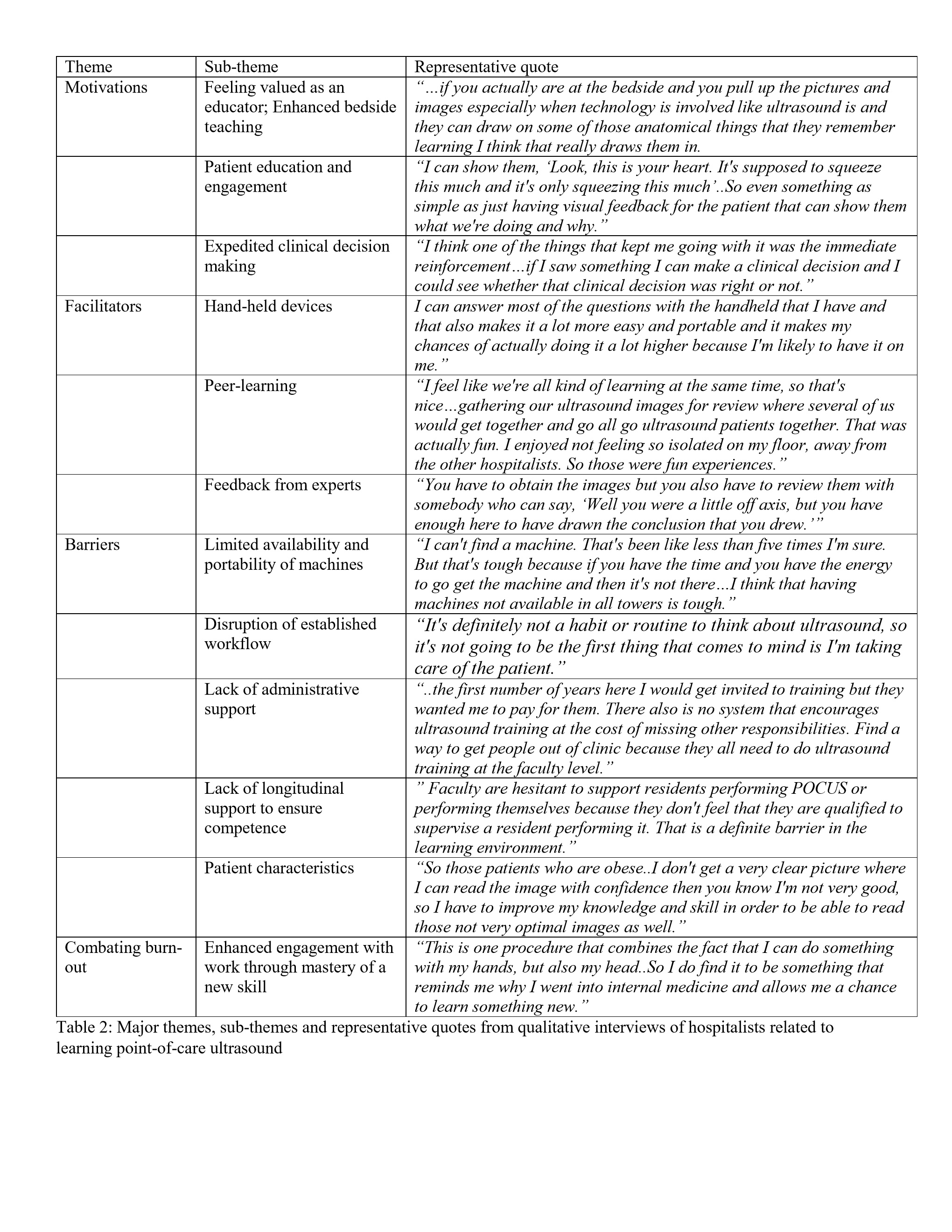Background: Point-of-care ultrasound (POCUS) training is rapidly expanding across all levels of internal medical education (1), but lack of trained faculty has been a persistent barrier to program expansion (2,3). POCUS faculty development is a complicated endeavor that must take into account mastery of a complex psychomotor skill-set, integration within existing practice habits, and adherence to organizational polices. Because of these issues, even well-designed POCUS faculty development programs can struggle with retention over time (4). The purpose of this study was to explore the experiences of hospitalists learning POCUS to help guide future curriculum design.
Methods: Qualitative study using instrumental case study design. Eighteen practicing hospitalists with prior enrollment in POCUS faculty development programs were recruited from 3 university-affiliated healthcare systems using purposive sampling to ensure a range of POCUS use patterns. Semi-structured in-person interviews explored topics of motivation, barriers, and burn-out. Interviews were transcribed and coded by 2 qualitative experts to generate themes. Results were validated via member checking.
Results: Table 1 displays the characteristics of interviewees. Most were junior faculty with <10 years of experience (13/18, 72%). The frequency of POCUS use among participants was evenly split with half using weekly or less (9/18) and half using more than weekly (9/18). Qualitative analysis yielded 4 themes: motivations, facilitators, barriers, and engagement/burn-out. Table 2 outlines themes, sub-themes, and representative quotes.
Conclusions: Hospitalists’ experiences learning POCUS provide important insights into how to optimize curriculum design. The findings of this study suggest the following elements are vital for POCUS faculty development programs: 1) longitudinal curricular support 2) integration of learning and practice into existing workflow and 3) administrative support. Practical considerations for implementing these recommendations include blended and online teaching, peer learning, expanded access to handheld devices, and integration of documentation and image archiving within existing clinical workflow to facilitate quality assurance while minimizing disruptions. Another important finding was that participants felt learning POCUS brought a renewed sense of joy and accomplishment to their work, which increased engagement and combated feelings of burn-out. This finding, along with perceived improvements in clinical care, patient education, and teaching skills may help POCUS leaders justify the investment of resources to administrators.


